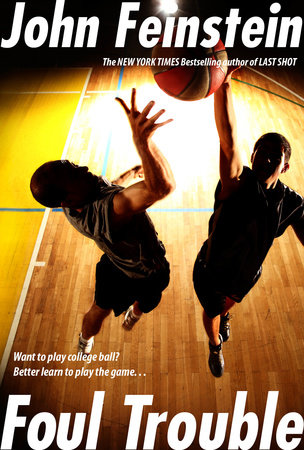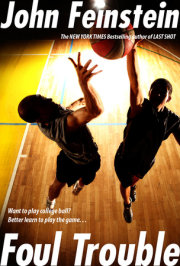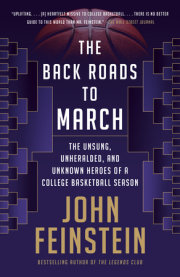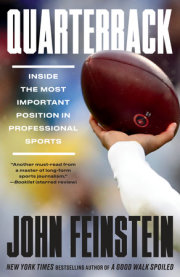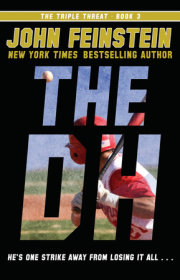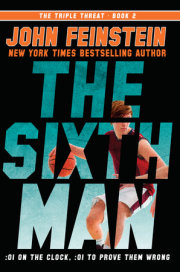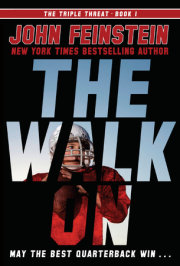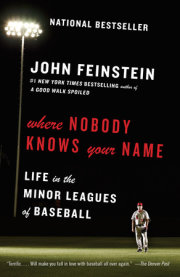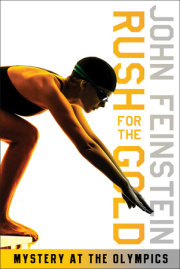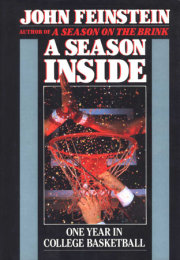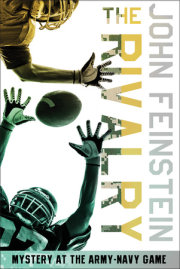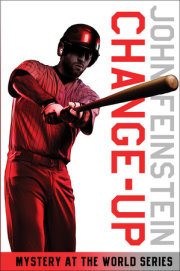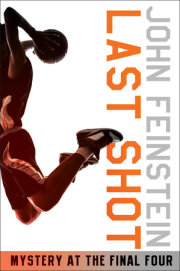Sitting in the backseat of his father’s jeep, Danny Wilcox was fantasizing about the moves he was going to make going head to head against the top high school basketball players in the country at a showcase summer camp.
Of course, it helped that the best high school player in the country was sitting in the front seat and would be Danny’s teammate while he was facing all those other top players.
Terrell Jamerson was basketball perfection. Lean, wiry-strong, six foot seven. His jumping ability had been described by one scouting service in a few words: “There’s not a high school gym in America that can hold him. Maybe--maybe--the Dean Dome or Rupp Arena can hold him.” Terrell could dunk with either hand, sucked up rebounds like a vacuum cleaner, and was deadly from the outside--making 47 percent of his three-point attempts.
Danny, by comparison, was six feet tall and could jump reasonably well--“for a white boy,” as Terrell liked to put it. He made about 35 percent of his three-point attempts--mostly wide-open shots because Terrell was being double-teamed. Maybe his most telling stat was that he shot 92 percent from the free throw line. Danny’s game was about practice, determination, and smarts. A coach’s kid, he’d been around the game all his life. He knew the history, the X’s and O’s, the options. Which made him a terrific point guard, running the offense for his team. He knew each of his teammates’ abilities, knew where the ball should go--usually to Terrell.
Where Danny spent the game analyzing, Terrell just played. He had the kind of raw ability that made his game look effortless.
Danny was fully aware that he was attending this camp because of Terrell. His dad too, really. Andy Wilcox had been the coach at Lexington High School for twelve years and had always produced solid, competitive teams. But everything had changed when Melinda Jamerson had decided to move her son from Hartford, Connecticut, to Lexington, Massachusetts, because she didn’t like the environment he was going to school in. As luck would have it, Melinda’s decision to move her family had coincided with her son’s six-inch growth spurt the previous summer. Suddenly, Terrell Jamerson was unstoppable.
The year before Jamerson arrived, the Lexington Minutemen had gone 17–10. A year later, with Terrell in the lineup, they went 27–3, won a prestigious Christmas tournament in Myrtle Beach, and just missed out on the state title. And that was only because Terrell had fouled out of the championship game.
People had noticed.
By midwinter, Lexington’s gym had begun to fill up--not just with fans but with coaches. The college coaches were easy to pick out because they almost always wore a shirt or a sweater in their school colors with the school’s name or logo on it. But they weren’t the only newcomers. No one from Lexington ever came to see the Minutemen play wearing a suit, but suddenly there were very expensive suits seen in the stands.
“Agents, shoe company reps, bird dogs for agents--you name it, they’re there,” Danny’s dad told him one night at dinner. “None of this is good.”
“It isn’t?” Danny asked. “Isn’t it good that all these people think Terrell can be a star?”
“It doesn’t take any kind of genius to see that Terrell can be a star,” Andy Wilcox answered. “What he needs is to pick a college and a coach who will care about him and not about promoting his own career.”
Following that breakout season, Danny knew that Terrell was being bombarded with letters from coaches and with phone calls, emails, texts, tweets, and Facebook messages. Even though the NCAA had all sorts of rules about how much contact coaches could have with high school recruits, it seemed like a flood to him.
It had even spilled over into Danny’s life. Realistically, Danny figured his best bet to play in college was at a Division III school. His dad kept pushing him to keep up his grades so he could have a shot at Williams or Amherst, which had high-quality D-3 teams. And there had been some interest from academic-minded Division I schools like nearby Holy Cross and even Harvard. When Danny showed his father the introductory letter from Harvard’s coach, Tommy Amaker, his eyes had gone wide. Harvard, like the Division III schools, didn’t give athletic scholarships, but his father didn’t care. “You find a way to get in there, and I’ll find a way to pay for it.”
But as Terrell’s national profile had broadened, so had Danny’s. All of a sudden, he had letters from Kentucky, Indiana, North Carolina, Maryland, and UCLA. Which was weird. Danny knew his game had improved greatly since he started playing with Terrell. But he also knew he wouldn’t play very much, if at all, at any of those schools.
“It’s called a package deal,” his father told him. “They know you’re Terrell’s best friend. If they think that taking you will entice him to come, then they’ll give you a scholarship. They always have one or two extra, because there are thirteen scholarships allowed and no one plays more than ten guys.”
“So I’d be on the team to help during practice,” Danny said.
“You’d be on the team as long as Terrell is on the team,” his father answered. “Don’t feel bad. You’re not the only one. Suddenly, a lot of schools think I have potential as an assistant coach.”
It was all so dizzying. In order to try to protect Terrell from the outsiders, as he had started to call them, Andy Wilcox decided to start his own summer league team so he could keep a close eye on Terrell during the summer camps and tournaments where the recruiting process would begin in earnest. At first, the AAU--which ran most of the tournaments--balked, claiming there was no time to certify the new team for the summer. When Andy Wilcox informed the AAU that the only team Terrell Jamerson would play for that summer was the newly formed Rebels, the team was miraculously certified within a couple of weeks.
Coach Wilcox had explained to Terrell that he wanted to coach him because he didn’t trust a lot of the AAU coaches who were in charge of summer league teams to watch out for him. Terrell had agreed but then showed up at the house one night appearing upset. “Coach, you’ve been great to me and to my mom . . . ,” he said.
“But?” Andy Wilcox said.
“Some people are sayin’ you want to coach me this summer so you can make a name for yourself--maybe get a college job out of it.”
“Stay right here,” Coach Wilcox said. He stood up and left the room. A moment later he was back, a clutch of papers in his hands. “Read these,” he said, handing the papers to Terrell.
Terrell read them, his eyes widening as he did. “All these guys are practically offering you jobs,” he said. “Big-time schools too. Whoa.”
Coach Wilcox nodded. “So your friends are right--being your coach does open up opportunities for me. But I don’t want some college job. Terrell, there are a lot of people out there who are trying to get to you. Either directly or through a back door like me. They see you as someone who can help make them rich and maybe even famous someday. I don’t want to give you a big head, but when someone like you comes along, people want to get on for the ride. Look at the posse LeBron James has. Those guys are all living on his money and his fame.”
“But, Coach, I’m not LeBron. . . .”
“I know you’re not, Terrell, and I’m very glad you know you’re not. But you have lots of potential. No one knows who is going to be the next LeBron James and who is going to be the next Lenny Cooke.”
“Who’s Lenny Cooke?” Terrell and Danny asked at the same time.
“He was a kid people thought might be as good as LeBron when they were both in high school. I guarantee you, he had as many people hanging on him as LeBron did, and as you do now. I can also guarantee you they’re long gone. All these new friends, Terrell--you think if you tear up your knee tomorrow, they’re still going to be hanging around? The coaches? The shoe company reps?”
Terrell was quiet for a moment, still staring at the letters. “I get it, Coach.”
“You’ve got a million options, but you have to be careful, Terrell,” Coach Wilcox said. He looked at Danny. “We all have to be careful.”
Copyright © 2013 by John Feinstein. All rights reserved. No part of this excerpt may be reproduced or reprinted without permission in writing from the publisher.

